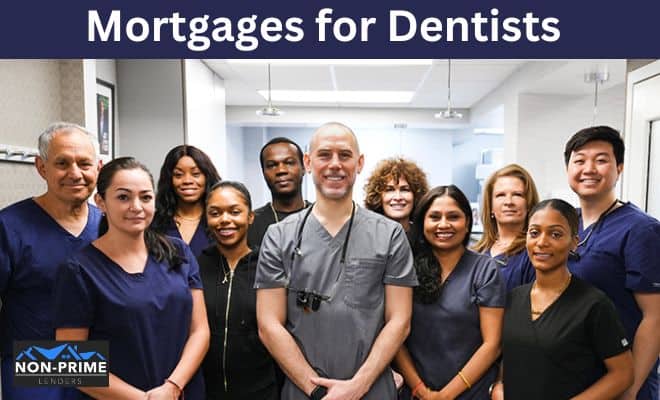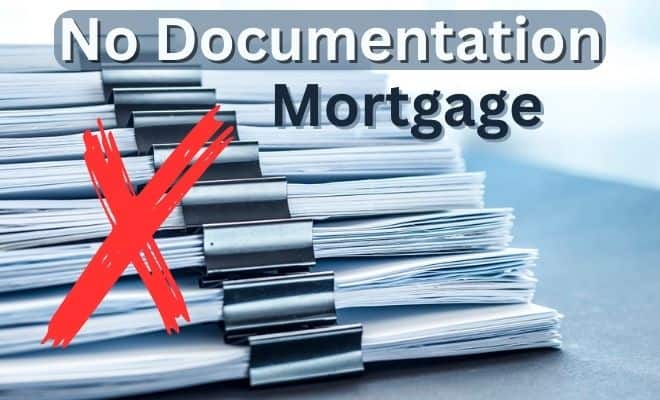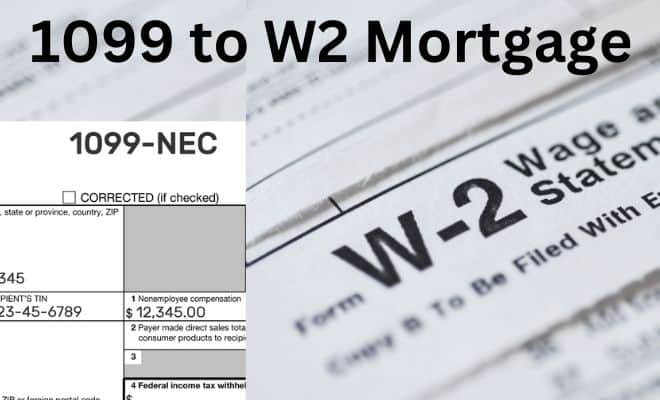Mortgages for Dentists
There are lenders who provide mortgages for dentists with specialized financing options tailored to the unique needs of American dental professionals. With low down payment requirements and exemption from private mortgage insurance (PMI), dentists can enjoy the benefits of homeownership. These unique mortgage programs also offer flexibility in terms of income verification and work history, making it easier for dentists to qualify.
If you are a dentist looking to own a home, explore the eligibility requirements, advantages, and application process for dentist mortgages. Additionally, discover tips for finding the right lender and managing student loan debt as a dentist.
Eligibility Requirements for Dentist Mortgages
When considering mortgage options for dentists, it is essential to understand the eligibility requirements. Dentist mortgage loans have specific qualifying criteria, credit score requirements, and income and employment verification procedures.
Qualifying Criteria for Dentist Mortgage Loans
To qualify for a dentist mortgage loan, lenders typically look for stable income that can be fully documented. While specific requirements may vary among lenders, most look for dentists who have been practicing for at least two years or have a signed employment contract. This ensures that the borrower has a steady source of income to afford mortgage payments.
In addition to the employment aspect, lenders also consider debt-to-income ratios. While some flexibility is offered for student loan debt, lenders generally prefer borrowers with a lower debt-to-income ratio to ensure their ability to make mortgage payments.
Credit Score Requirements for Dentist Mortgage Loans
Credit scores always play a significant role in mortgage loan approvals. For dentist mortgages, a good credit score is also important. While specific requirements may vary, a credit score of around 700 or 720 is typically needed to qualify for financing options, including 100% financing. Maintaining a good credit score and credit history demonstrates financial responsibility and gives lenders confidence in the borrower’s ability to repay the mortgage.
Income and Employment Verification for Dentist Mortgage Loans
Lenders require income and employment verification to assess the borrower’s financial stability. Self-employed dentists may need to provide two years of tax returns or other financial statements to demonstrate their income. Those with employment contracts may qualify for mortgage loans even before commencing work.
During the verification process, lenders may request additional documentation such as pay stubs or deposits, bank statements, and documentation of any other income sources. This verification ensures that the borrower’s income is sufficient to afford mortgage payments and reduces the risk for both the lender and the borrower.
Understanding the eligibility requirements for dentist mortgages is crucial for dentists looking to secure home financing. Meeting the qualifying criteria, maintaining a good credit score, and providing necessary income and employment verification documentation will increase the chances of approval for a dentist mortgage loan.
Advantages of Dentist Mortgages
When securing a mortgage, dentists enjoy several advantages catering to their unique financial needs. From low down payment options to an exemption from private mortgage insurance (PMI), dentist mortgages offer a range of benefits that set them apart from conventional loans.
Zero Down Payment Loan Options for Dentist Mortgages
One significant advantage of dentist mortgages is the availability of low down payment options. Many physician loan programs allow dentists to finance up to $1,500,000 without any down payment, while larger loans typically require a down payment as low as 0%. This lower upfront cost enables dentists to conserve their savings or invest in other areas of their practice.
Exemption from Private Mortgage Insurance (PMI)
Unlike conventional mortgages, dentist mortgage loans do not require private mortgage insurance (PMI). PMI is typically mandatory for borrowers who put down less than 20% on home purchases. By waiving this requirement, dentist mortgages save borrowers thousands of dollars throughout the life of the loan, providing valuable cost savings.
Flexible Loan Terms for Dentist Mortgages
Flexibility is another significant advantage that dentist mortgages offer. Lenders understand the unique financial circumstances of dentists and provide more flexible loan terms to accommodate their needs. For example, self-employed dentists may qualify for these loans with just two years of tax returns or financial statements. Additionally, dentists with signed employment contracts can even be eligible for a mortgage before starting their new job, making the homebuying process smoother and more accessible.
Dentists can easily achieve their dream of homeownership by taking advantage of low down payment options, exemption from PMI, and flexible loan terms. These advantages cater specifically to dental professionals’ financial situations, making dental mortgages a favorable option for those at the beginning of their careers or looking to upgrade their homes.
Physician Loan Programs for Dentists
Physician loan programs are specifically designed to cater to the unique financial needs of dentists and other medical professionals. These programs offer favorable terms and benefits, making homeownership more accessible for dentists.
Overview of Physician Mortgage Programs
Physician mortgage programs are tailored to accommodate the specific circumstances of dentists. These programs often have more relaxed eligibility requirements, allowing dentists to qualify with lower down payments and higher debt-to-income ratios than conventional loans.
With physician mortgage programs, lenders consider dentists’ earning potential and future income growth. This recognition of the profession’s financial prospects makes it easier for dentists to secure mortgage financing.
Loan Amounts and Interest Rates for Dentist Mortgages
Dentist mortgage programs generally offer higher loan amounts than conventional mortgages, allowing dentists to fund their home purchases with larger loan sizes into the millions. This is particularly beneficial for dentists investing in more expensive properties or establishing their practices in desirable locations.
Interest rates for dentist mortgages are typically competitive, aligning with market rates. However, depending on the lender and program chosen, dentists may be eligible for discounted rates or special rate lock options.
Repayment Options and Loan Terms for Dentists
Physician loan programs often provide flexible repayment options that are beneficial to the unique financial circumstances of dentists. These options may include interest-only periods, adjustable-rate mortgages, or extended loan terms.
By offering flexible repayment options, physician loan programs aim to accommodate the financial needs of dentists throughout different stages of their careers. This flexibility allows dentists to manage their mortgage payments more effectively, especially during the initial years of practice when income may vary.
- Flexible repayment options designed to accommodate dentists’ changing financial circumstances
- Interest-only periods, adjustable-rate mortgages, and extended loan terms available
- Enables dentists to manage mortgage payments throughout their careers effectively
Choosing the right physician mortgage program is crucial for dentists. Proper research, comparing lenders, and understanding the specific terms and conditions offered by each program can help dentists find the best fit for their financial goals and homeownership aspirations.
Understanding the benefits, eligibility criteria, and options available in physician loan programs empowers dentists to make informed decisions when seeking mortgage financing. By exploring these specialized programs, dentists can take advantage of the opportunities and achieve their homeownership dreams.
Application Process for Dentist Mortgages
When applying for a dentist mortgage, there are specific steps and required documentation that you need to be aware of. The application process ensures that lenders have all the necessary information to assess your eligibility and determine the loan amount you qualify for.
Required Documentation for Dentist Mortgage Applications
During the application process, you will need to gather and provide the following documents:
- Proof of identity (valid ID or passport)
- Social Security number and a copy of your SS card
- Completed loan application form
- Proof of income, such as pay stubs, W-2 forms, or tax returns
- Bank statements for the past few months
- Documentation of any other assets, such as investments or real estate
- Completed credit authorization form
- Information about any existing debts or loans
Providing accurate and up-to-date information is essential to ensure a smooth application process. Missing or incomplete documentation may cause delays or rejection of your application.
Steps Involved in Applying for a Dentist Mortgage
The application process for a dentist mortgage typically involves the following steps:
- Research and compare different lenders offering dentist mortgage programs.
- Contact the chosen lender and express your interest in applying for a dentist mortgage.
- Complete the loan application form and gather all required documentation.
- Submit the application and all supporting documents to the lender.
- The lender will review your application and and will determine your eligibility based on the provided information and documentation.
- You will receive an official loan offer detailing the terms and conditions if approved.
- Review the loan offer carefully, including interest rates, repayment terms, and any associated fees.
- If you accept the offer, you will proceed with the closing process, which involves signing the necessary documents and paying any applicable fees.
- Once the closing process is complete, the loan funds will be disbursed, and you can proceed with the purchase of your home.
Timeline and Approval Process for Dentist Mortgages
The timeline for the approval process can vary depending on several factors, including the lender, the complexity of your financial situation, and the completeness of your application and documentation.
Typically, it will take 30 to 45 days from the time of application submission to loan approval. However, this timeline can be shorter or longer based on individual circumstances.
During the approval process, the lender will review your application, conduct a credit check, verify your income and employment details, and evaluate your debt-to-income ratio. They may also assess your credit history, assets, and other financial factors.
Once your application is reviewed and approved, your lender must issue a loan commitment letter outlining the terms and conditions of the mortgage. It’s important to carefully review this letter and address any queries or concerns before proceeding with the closing process.
By following the necessary steps and providing all required documentation, you can streamline the application process and increase the likelihood of a successful outcome for obtaining a dentist mortgage.
Managing Student Loan Debt as a Dentist
Student loan debt will often significantly impact dentists’ ability to qualify for a mortgage. Lenders consider the debt-to-income ratio, which compares the monthly student loan payments to the dentist’s income when determining eligibility for a mortgage.
Impact of Student Loan Debt on Mortgage Qualification
Having a high student loan debt can affect the amount of mortgage loan a dentist qualifies for. Lenders may see a large student loan balance as a potential risk, reducing dentists’ purchasing power. Higher monthly student loan payments can also impact the debt-to-income ratio, making meeting the lender’s requirements more challenging.
However, it’s not impossible to qualify for a mortgage as a dentist with student loan debt. Lenders often take into consideration the dentist’s income potential and future earning prospects. Proper financial planning and understanding your debt-to-income ratio can help position yourself better for mortgage qualification.
Strategies for Managing Student Loan Debt and Mortgage Payments
When managing student loan debt and preparing for a mortgage, dentists can employ several strategies to improve their financial situation:
- Refinancing Student Loans: Explore options for refinancing student loans to lower interest rates and monthly payments. This can free up funds that can be utilized for mortgage payments.
- Income-Driven Repayment Plans: Consider enrolling in income-driven repayment plans for federal student loans. These plans base the monthly payments on the dentist’s income and family size, making it more manageable.
- Debt Prioritization: Develop a strategy to prioritize debt payments effectively. Focus on high-interest loans first while making minimum payments on others to reduce overall debt burden.
- Budgeting and Saving: Create a realistic budget to control expenses and save for a down payment. Saving can help demonstrate financial responsibility and improve the dentists’ financial profile.
- Seek Professional Advice: Speak with a financial advisor who specializes in working with dental professionals. They can provide personalized guidance on managing student loan debt and mortgage planning.
By implementing these strategies and managing student loan debt effectively, dentists can enhance their financial standing, improve their debt-to-income ratio, and increase their chances of qualifying for a mortgage.
Specific Considerations for Self-Employed Dentists
Financial Documentation and Qualification Process for Self-Employed Dentists
As a self-employed dentist, there are specific considerations when it comes to the financial documentation and qualification process for a mortgage. Lenders typically require comprehensive financial documentation to assess your income stability and repayment capacity.
Besides the usual documents like tax returns, bank statements, and credit reports, self-employed dentists may need to provide additional documentation such as:
- Business financial statements, including P&L statements, balance sheets, and cash flow statements.
- Proof of business ownership and registration documents.
- Professional licensing and certifications.
These documents help lenders evaluate your business’s financial health and assess your ability to repay the mortgage. Keep your financial records organized and up to date to streamline the qualification process.
Income Calculation and Verification for Self-Employed Dentists
Calculating and verifying income for self-employed dentists can be more complex compared to salaried professionals. Lenders typically use a two-year average of your net income to determine loan eligibility. They may also review the stability and consistency of your income.
Some additional factors that lenders may consider include:
- Seasonality of your business and fluctuations in income.
- Expenses related to running your practice include equipment costs, staff salaries, and rent.
- Income growth trends and future earning potential.
To verify your income, lenders may request:
- Two years of personal and business tax returns, including all schedules and attachments.
- Year-to-date profit and loss statements from your business.
- Bank statements and financial statements showing incoming revenue.
Maintaining accurate and organized financial records to support your income claims as a self-employed dentist is extremely important. If you cannot fully document your income as a dentist using your tax returns due to high write offs, then consider a bank statement loan.
Tips for Finding the Right Dentist Mortgage Lender
When it comes to financing your dream home as a dentist, finding the right mortgage lender becomes crucial. Here are some helpful tips to guide you in your search:
Researching and Comparing Mortgage Lenders for Dentists
- Start by researching reputable mortgage lenders that offer specialized programs for dentists. Look for lenders with experience in working with dental professionals.
- Read reviews and testimonials from other dentists who have used their services. This can provide valuable insights into their customer satisfaction and level of expertise.
- Consider reaching out to others in your network or dental associations for recommendations on lenders they have had positive experiences with. They can provide valuable referrals.
- Take the time to compare rates, loan terms, and repayment options different lenders offer. This will help you identify the most competitive and suitable options for your needs.
Considerations When Choosing a Dentist Mortgage Program
- Assess your specific financial needs and goals. Determine whether you require a low down payment option, flexible loan terms, or specific repayment structures.
- Look into the eligibility criteria for each mortgage program. Check if you meet the credit score requirements and income verification standards set by the lender.
- Review the loan amount limits and interest rates offered by different programs. Ensure they align with your budget and long-term financial plans.
- Take into account the level of customer service and support provided by the lender. Clear communication and responsiveness are essential throughout the mortgage application process.
- Evaluate any additional benefits or perks offered by the lender, such as mortgage pre-approval or dedicated loan officers with expertise in dentist mortgages.
By conducting thorough research, comparing options, and considering your specific needs, you can find the right dentist mortgage lender that aligns with your goals and financial situation. Remember to carefully review all terms and conditions before proceeding with your application.
Frequently Asked Questions about Mortgages for Dentists
Here are some common questions that dentists often have regarding mortgages:
What are the Eligibility Requirements for Dentist Mortgages?
Eligibility requirements for dentist mortgages may vary among lenders, but generally, dentists need to meet certain criteria such as having a valid dental license, being a permanent resident or U.S. citizen, and having a stable income. Lenders may also consider credit history and debt-to-income ratio when assessing eligibility.
How Much Down Payment is Required for Dentist Mortgages?
The down payment requirements for dentist mortgages can vary depending on the lender and the specific loan program. However, many dentist mortgage programs offer low down payment options, typically ranging from 0% to 5% of the home’s purchase price. Some lenders may require larger down payments for larger loan amounts.
Will Student Loan Debt Affect Your Ability to Qualify for a Dentist Mortgage?
Having student loan debt does not automatically disqualify dentists from qualifying for a mortgage. However, lenders do consider debt-to-income ratio, which includes student loan payments, when evaluating mortgage applications. It’s important to manage student loan debt responsibly and maintain a good credit score to increase chances of mortgage approval.
What Benefits Do Dentist Mortgage Programs Offer?
Dentist mortgage programs provide several advantages compared to conventional loans. These benefits may include low down payment requirements, exemption from private mortgage insurance (PMI), flexible loan terms, and more lenient income and employment verification for self-employed dentists. These special dentist programs are designed to meet the unique financial needs of dentists.
Can Self-Employed Dentists Qualify for Dentist Mortgages?
Yes, self-employed dentists can qualify for dentist mortgages. Lenders may require self-employed dentists to provide additional financial documentation, such as two years of tax returns and profit/loss statements, to verify income. Meeting the lender’s requirements and demonstrating a stable income stream is crucial for self-employed dentists to secure a mortgage.





